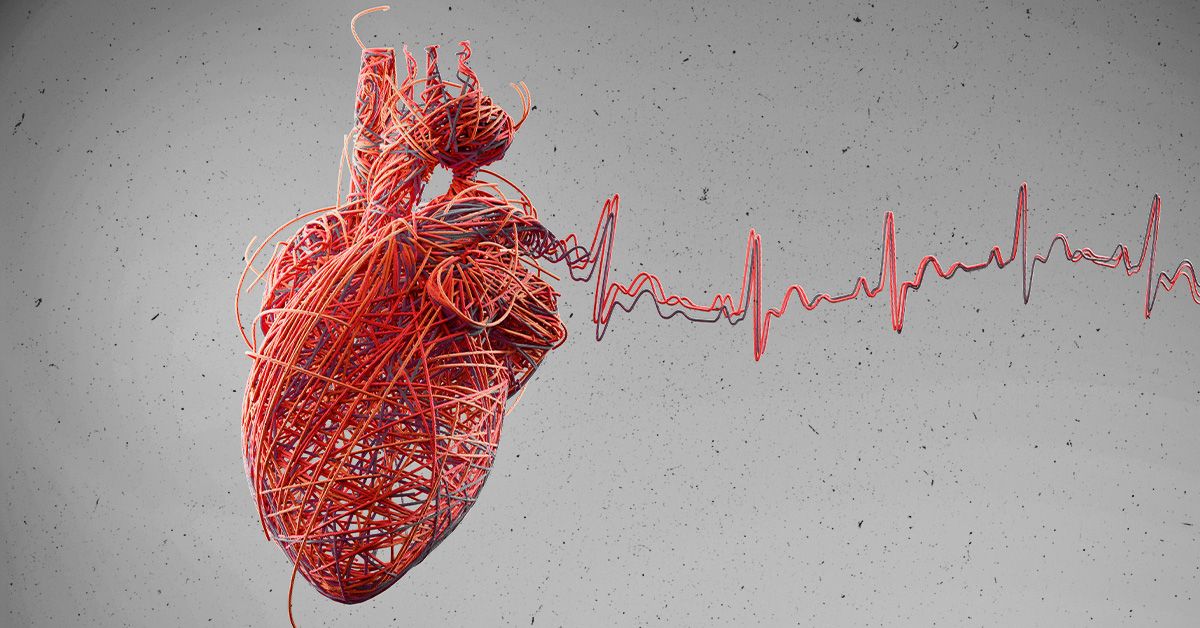Bacterial Infections May Trigger Heart Attacks, New Study Reveals
In a world where cardiovascular disease remains the leading cause of death, a groundbreaking study is shedding light on an unexpected trigger for heart attacks: bacteria lurking in the mouth. As millions grapple with the consequences of heart disease, researchers have revisited a long-abandoned theory linking bacterial infections to myocardial infarction—commonly known as heart attacks. The implications of this link could reshape how we think about cardiac health and the importance of oral hygiene.
The Silent Killers: Understanding the Research
About 19.8 million people worldwide succumbed to heart disease in 2022, with approximately 85% of these fatalities due to strokes and heart attacks. For years, experts have been aware that bacterial infections might elevate heart disease risk, but a lack of conclusive evidence has hindered further investigations.
Dr. Pekka J. Karhunen, the lead author of the new study published in the Journal of the American Heart Association, emphasized how modern microbiological techniques have revitalized interest in this once-dismissed hypothesis: “The possibility that infectious agents are involved in the chronic inflammation of coronary plaques has been considered for a long time, but this theory was abandoned about 20 years ago due to failed large long-term antibiotics trials.”
Through a meticulous analysis of coronary plaque samples from 217 deceased individuals, the study unearthed significant findings that directly challenge previous clinical assumptions. The researchers identified the viridans group of Streptococci, typically found in the mouth and throat, as predominant inhabitants of arterial plaque. Karhunen elaborated, “These bacteria are known to form biofilms, which can disrupt oral health. However, when they infiltrate arterial walls, they can precipitate dangerous inflammation.”
Implications of Oral Bacteria
- Bacterial Involvement: Most dangerous bacterial strains reside within the oral cavity.
- Inflammatory Activation: Once activated, bacteria can infiltrate atherosclerotic plaques, inducing inflammation and plaque rupture.
- Biofilm Formation: A dense biofilm may compose various bacterial species, complicating the relationship between inflammation and cardiovascular risk.
Dr. Sergiu Darabant, a cardiologist at Miami Cardiac & Vascular Institute, remarked on the findings: “This study adds another piece to the puzzle—showing how bacteria from the mouth might play a hidden role in driving coronary inflammation.” He further noted that although advancements have been made in cardiovascular medicine, prevention efforts remain limited, thus augmenting the urgency to understand these bacterial impacts.
Scientific Skepticism and Limitations
Despite the intriguing results, experts advise caution. Dr. Yu-Ming Ni, a lipidologist at MemorialCare Heart and Vascular Institute, stressed the need for comprehensive temporal analysis: “You’re taking a picture in the aftermath, so you don’t have a great timeline for what exactly is happening in someone’s plaque that leads to a vascular event.” He posits that while the association is compelling, causation remains murky. “Inflammation is certainly a key player in clinical heart disease,” Ni added, highlighting the complexity of the interplay between bacteria and vascular health.
Managing Oral Health for Cardiovascular Safety
The findings underscore the importance of maintaining robust oral hygiene to mitigate potential risks. Dr. Brett A. Sealove, a cardiology expert at Hackensack Meridian Jersey Shore University Medical Center, elucidated the pathophysiology of viridans group Streptococci: “These bacteria live synergistically within the human body. Problems arise when they enter the bloodstream, typically via the mouth.” Sealove advocates for proactive dental care to thwart the risk of systemic infections that could trigger heart complications.
To further optimize cardiovascular and oral health, experts recommend the following steps:
- Regular dental check-ups and cleanings.
- Timely treatment of dental infections.
- Implementing good oral hygiene practices including tooth brushing and flossing.
- Maintaining a balanced diet to reduce inflammatory markers.
Dr. Edward Liu, head of infectious diseases at Hackensack Meridian Jersey Shore University Medical Center, cautioned that ongoing research is crucial to understanding the implications of these findings. “Strep viridans is common and expected to be in parts of the body,” he noted. “Active infections should be treated promptly to prevent complications.”
The Road Ahead
While the recent study opens new avenues for inquiry, it also raises critical questions about the interaction between oral and systemic health. The importance of bacterial health in the mouth suggests a newfound emphasis on oral hygiene may be beneficial not only for preventing cavities but also for safeguarding cardiovascular health. With further research, there lies the potential for novel interventions, including vaccines aimed at disrupting biofilm formation and reducing bacterial activity that may lead to heart attacks.
As the field of cardiology evolves, the intrinsic link between oral and heart health may illuminate pathways to more effective preventive measures, positioning oral care as an essential component of comprehensive cardiovascular strategies. For now, patients and healthcare providers alike must remain vigilant, advocating for a healthier mouth as a gateway to a healthier heart—an alliance that might just be the key to saving lives.
Source: www.medicalnewstoday.com


